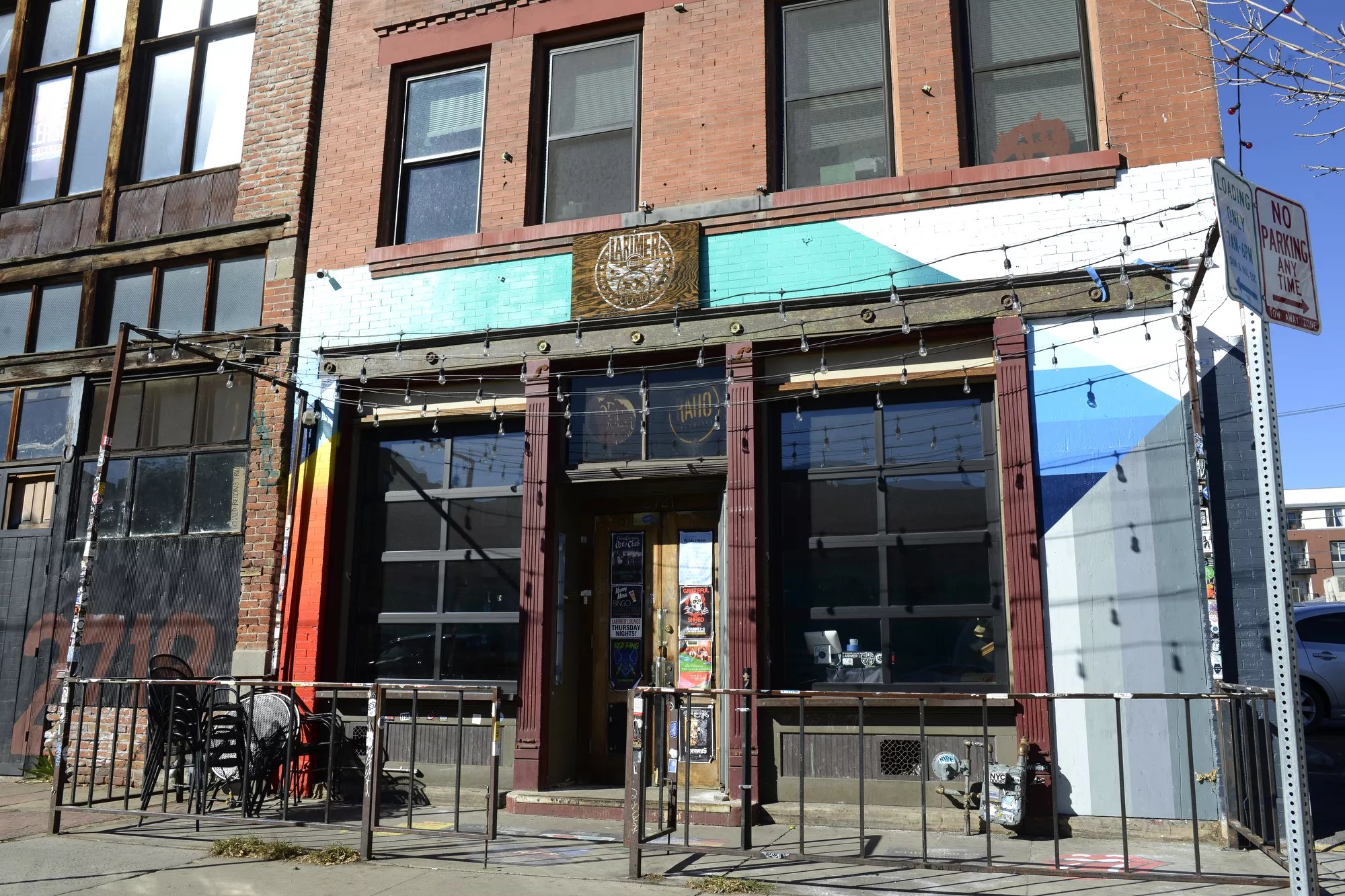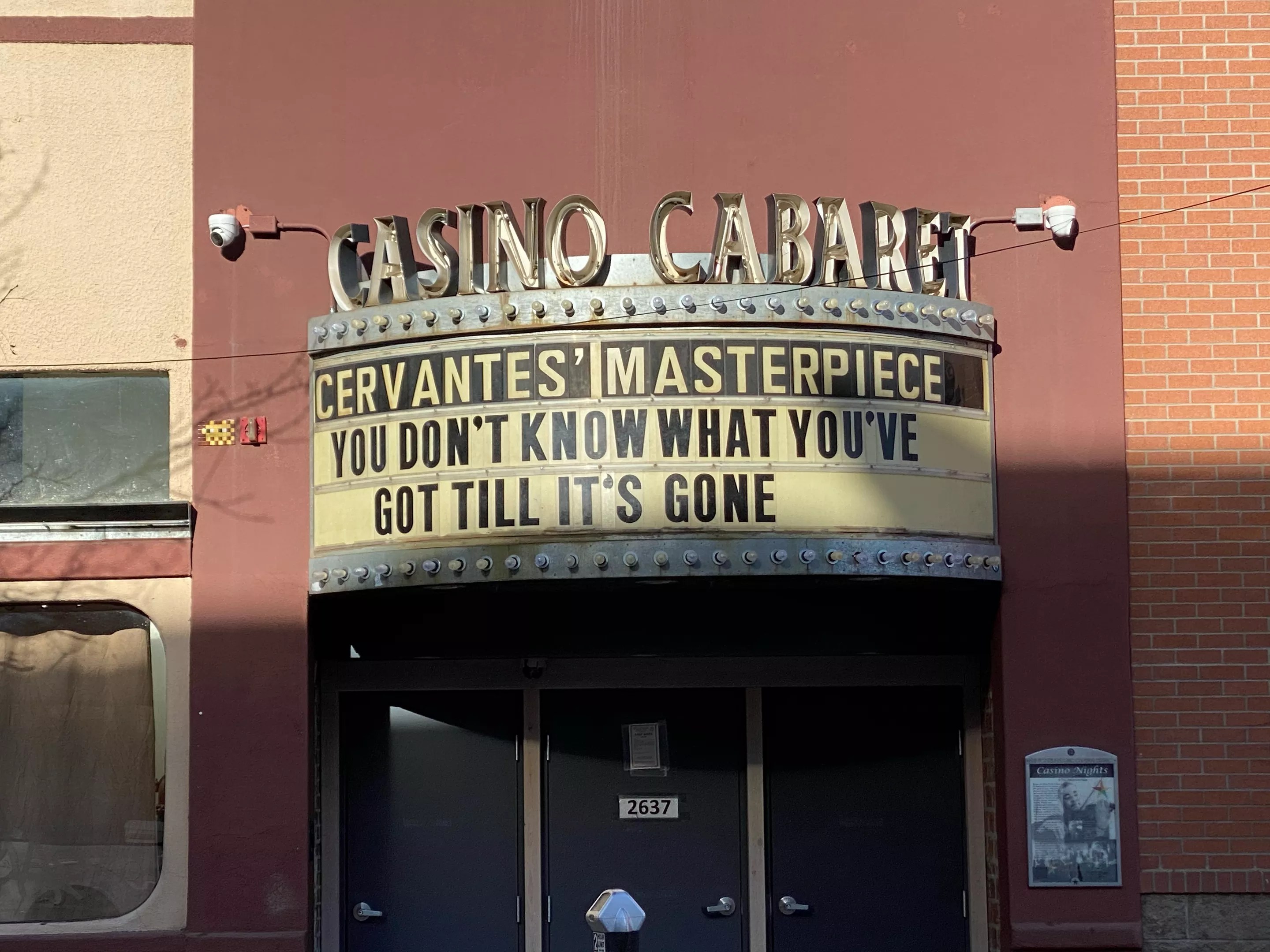
Brandon Marshall

Audio By Carbonatix
On February 8, the State of Colorado announced that it would be divvying $7.4 million from the Colorado Arts Relief Grant between 123 arts, culture and entertainment businesses and nonprofits, as well as 599 individual artists and industry workers. But no good deed goes unpunished: By mid-week, some people were crying foul regarding how the money was being distributed, says Margaret Hunt, head of Colorado Creative Industries, the state’s arts agency.
Small-business owners – even some who had received grants – sent angry messages and made irate calls to Colorado Creative Industries staffers, who had been working overtime to distribute money earmarked for saving the arts and culture sector by the Colorado General Assembly in December 2020.
As people learned who did – and didn’t – receive emergency support, the allocation of awards created a public-relations disaster for Colorado Creative Industries, at a moment when the agency’s staff hoped to be celebrating.
The most common gripe? Several of the grant recipients awarded the most money were owners of independent bars and venues, but also talent buyers in leadership positions at AEG Presents Rocky Mountains. That’s the dominant live-music promoter in the region and the local branch of a global corporation owned by Colorado billionaire Philip Anschutz.
Some in the scene argued that venues owned by people who work for AEG should not be given government money when their boss has such deep pockets. A few disputed the actual independence of those venues, arguing that because of their owners’ employment with AEG, the clubs have an unfair monopoly on talent, making independent venues without AEG ties difficult to book.
But the Boulder Theater, Fox Theatre, Aggie Theatre, Lost Lake, Larimer Lounge, Globe Hall, Cervantes’ Masterpiece Ballroom and Cervantes’ Other Side – venues whose owners work for AEG – are all independent. They are legally registered as individual companies; if any of those owners left AEG, they would still control their own bars and clubs. Yes, it’s a savvy arrangement that AEG has with those venue owners; the connections make the corporation an unparalleled competitor in the market. But that does not mean that those venues are run, much less owned, by AEG.
Like almost all cultural businesses, these venues are taking a beating during the pandemic and in need of aid if they are to continue operating, say the owners. There is no sign that help for them is coming from AEG – and why would it? Even that entertainment giant is bleeding money and staff, and scrambling to keep its own venues – which have been shuttered since March – viable for the long term.
Neither AEG nor Live Nation, the other major corporate promoter in town, applied for the emergency assistance, though the application process was open to all cultural business owners, not just small ones. With the severe losses their profitable venues have experienced, had they applied and received grants, they might have depleted the funds.
As news of the grants that were awarded spread, AEG Vice President and Talent Buyer Scott Campbell and his wife, Gwen Campbell, who co-own Larimer Lounge, Globe Hall and Lost Lake (Gwen is also CEO of those venues), took a bruising on social media. As reported by the Denver Post, their personal lives, vacations and business maneuvers in an attempt to acquire the hi-dive were scrutinized and criticized by colleagues in the industry.
The Campbells’ three venues, which compete with many of Denver’s smaller clubs, such as Ophelia’s, the hi-dive and the Lion’s Lair, were initially awarded a total of $340,000 in funds from the state. That number was not determined by a particular ask from the Campbells, Hunt says; all grant sizes were determined according to the percentage and quantity of income lost. (Colorado Creative Industries is housed under the Office of Economic Development & International Trade, and is as committed to supporting cultural and entertainment businesses as it is advancing culture for its own sake; its focus is not purely philanthropic.)
Many government grants explicitly state that they are awarded with an eye toward equity in terms of race, class and gender. In the case of these awards, the individual circumstances of a business’s owners – whether they were on ski trips or sleeping on the streets – were not considered. Nor was the merit of their work or the quality of their grant writing. “We really try to be agnostic about the ownership,” says Hunt.
Ultimately, Hunt reached out to Scott Campbell, who serves with her on the Take Note Colorado board of directors, to let him know about the flap over funding, and the Campbells decided to return $70,000 to the state, so that it could be distributed to venues that did not make the first cut. Other individual artists who no longer needed the emergency aid did the same.

Larimer Lounge, 2721 Larimer Street.
Scott Lentz
“I can’t say that it’s been easy,” says Gwen Campbell. “We’ve been in a dire situation with our businesses, and it’s just been devastating. … We’re so grateful we’ve received this funding.”
While the grant funds they keep will help the Campbells stay open, they recognize that other businesses and individuals in the industry are also in need and received nothing. “There wasn’t enough money,” says Gwen. “We spoke with the state and with Margaret, and we gave some money back from the grant so they can give it to one or two or more people, hopefully. I wish there was more money coming in for everyone else.”
The Colorado Legislature had been urged by arts advocates to create a $25 million fund to keep the industry fueled through the pandemic; lawmakers agreed to about a third of that amount.

David Weingarden, Z2 Entertainment’s vice president of concerts and events (from left); the Lumineers’ Wesley Schultz; Senator Michael Bennet; the Lumineers’ Jeremiah Fraites; and Cheryl Ligouri, CEO of Z2 Entertainment.
Jon Solomon
The two largest grants, each for $200,000, went to the Telluride Bluegrass Festival and Z2, which runs the Boulder, Fox and Aggie theaters. Z2 is owned by seven shareholders, including CEO Cheryl Liguori, Vice President of Concerts, and Don Strasburg, who is co-president and senior talent buyer for AEG; the Z2 grant came in for criticism because of that tie.
“Most people think that Z2 entertainment is owned by AEG, and that’s not the case,” says Liguori. “Don, personally, has stock in [Z2], because he was one of the founding members of the Fox. I think what a lot of people don’t realize is in the past year, we’ve lost seven figures’ worth of income with no way to generate revenue.
“Right now, the only people on staff are me. The two talent buyers, our accountant, and marketing manager are working part-time,” she continues. “The grant that we received doesn’t even cover our property taxes that are due next month. We won’t have any meaningful income until probably September. I don’t understand what the concern is. I filled out the application personally. We provided the numbers that were requested of us, and we were surprised and appreciative.”
Facing around a quarter-million dollars in property taxes, Ligouri has been busy cutting every cost possible, from canceling dumpster service to renegotiating Z2’s lease and the contract with its copier company. Even when the venues reopen for socially distanced concerts, they will not break even, she notes.
“When you lose 90 percent of your income year over year and you’re looking at the next six months, our business will not go back to normal until two things happen: The social distancing metrics have to go away, because our businesses will never get back to capacity with those in place, and the industry across the entire country has to be open at full capacity for artists to start moving around the country,” Liguori says. “We do badly need this grant, and we’re going to be in debt for a long time.”
Cervantes’ and Cervantes’ Other Side, which is independently owned in part by AEG talent buyers Scott Morrill and Adam Stroul along with Duncan Goodman and Diana Azab, received $150,000.

The exterior of Cervantes’ Masterpiece Ballroom.
Duncan Goodman
“We’ve had to make some tough choices in order to ensure our long-term survival,” Goodman adds. “Initially, we kept most of our staff on payroll even though we weren’t operating and generating any revenue. We were able to negotiate terms with several of our creditors in the form of deferment plans. Deferment only means that we don’t have to pay now. Those bills will come due in the future.”
And it’s those deferred and overdue bills that could potentially destroy so many venues and businesses in the years to come, even after live music returns, concerts are again packed, and business seems to be going well.
“A year and a half of overhead without income is a really bitter pill to swallow,” says Liguori. “We have to do everything we can to support our overhead. We’ve had great, great support from our community with our seat-naming campaign and venue recovery fund and people buying merchandise. But that only goes so far. It doesn’t pay the property tax bill or the rent and the utilities and insurance.
“There’s so much overhead to a business that has nothing to do with the actual cost of the show,” she adds. “We are so grateful to the State of Colorado for carving out some money to help the venues.”
Update: An earlier version of this story said that Z2 Vice President David Weingarden is one of the owners of Z2. He is not. Our apologies for the error, which has been corrected in the current version.